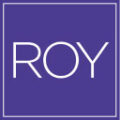How Wise Choices Can Be Money-Saving Tips
-
Licensed Insolvency Trustee and Financial Recovery Advisor Mathieu Roy
- 7 March 2024
- 7 March 2024
In a global context marked by uncertainty, many face the need to re-examine their spending habits. The recent economic crisis has shown us just how important it is to be in control of our finances.
Making smart financial decisions is crucial now, more than ever before. Not only to save, but also to prepare for a financially uncertain future. Feeling overwhelmed by debt or unable to save? You’re not alone and there are steps you can take to improve your financial situation.
Discover the steps you can take to improve your financial situation.
Making Cost-Effective Choices: A Step Towards Financial Health
The first step towards making better financial choices is to establish a solid plan to save money. Create a realistic budget that breaks down your income and expenses, such as housing, food, entertainment and savings. Sticking to this plan helps you avoid spending more than you earn and impulse purchases.
Setting savings goals is also key. Your budget will reveal areas to cut back, making saving more money easier. A savings plan is an excellent way to achieve both your long-term and short-term goals. Whether it’s a dream vacation or a rainy day fund, having a savings plan helps you reach your goals.
Prioritize Your Spending
Take a closer look at your spending and figure out what you absolutely need (essentials) and what you can live without (non-essentials). Think about those gym memberships you never use or subscriptions you forgot about. Maybe you could reduce your cell phone plan. Cutting on these non-essential fees will free up additional funds that you can save or use to pay off debt.
Save on Everyday Purchases
When making purchases, look for the best prices, use coupons and compare offers. Buy in bulk when it saves money, and consider cheaper brand options that offer similar quality. Making grocery and shopping lists can also help you reduce impulse buying and stay on budget. Doing this could help you save thousands of dollars.
Automate Your Savings
Automate your savings by setting up automatic transfers to a savings account when you deposit your salary. This ensures consistent saving and minimizes the temptation to spend these funds. Most online bank app allow you to set up these automatic transfers without too much trouble.
Avoid Unneeded Debt
Interest on debt, particularly those with high interest rates, can quickly eat into your savings and emergency fund. Especially when the interest rate is particularly high. Avoid piling up non-essential debt and focus on paying off your existing debts.
This is why paying off debts with high interest rates such as credit cards is always a good place to start. Interest on these types of debts can grow quickly and become a major financial burden. In addition, it also can affect your credit rating. If you’re behind on payments, it’s essential to pay them off to avoid penalties and additional interest charges.
But What if All This Isn’t Enough?
If you find yourself in a situation where you are unable to save money and your debts are piling up, you’re not alone. Solutions are available, and a licensed insolvency trustee (LIT) can help you find them.
Consider Debt Consolidation
If you’ve amassed credit card debt, you may be able to pay it off through debt consolidation. This option allows you to combine all your debts into a single loan. As a result, you may then obtain a better interest rate on this loan. This can simplify your finances, since the loan will combine all your debts into a single monthly payment.
This solution also allows you to spread your repayments period, up to five years. Moreover, unlike a consumer proposal or a personal bankruptcy, it will have no negative impact on your credit history.
Consumer Proposal: Negotiate With Your Creditors
A consumer proposal could also be a solution if you’re in financial difficulty. This legal procedure allows you to make a formal offer to your creditors to settle part of your debts.
A licensed insolvency trustee oversees this type of process. Filing a consumer proposal can be an effective alternative to personal bankruptcy.
Personal Bankruptcy: A Last Resort Option
If none of these options is suitable, personal bankruptcy remains an option.
Bankruptcy is a process regulated by the Bankruptcy and Insolvency Act (BIA). It offers the possibility of paying off your debts. Either by transferring some of your assets or by making reduced monthly payments.
A licensed insolvency trustee will guide you through the process. With their help, you can quickly eliminate your debts with this simple yet effective method.
It’s imperative to seek proper advice before making decisions about your debts and financial health. A meeting with a trustee will enable you to make informed decisions about your next steps.
The experts at M. Roy & Associés are here to help you regain serenity while getting rid of your debts. Contact us today to begin your journey to a life free of financial burdens.


